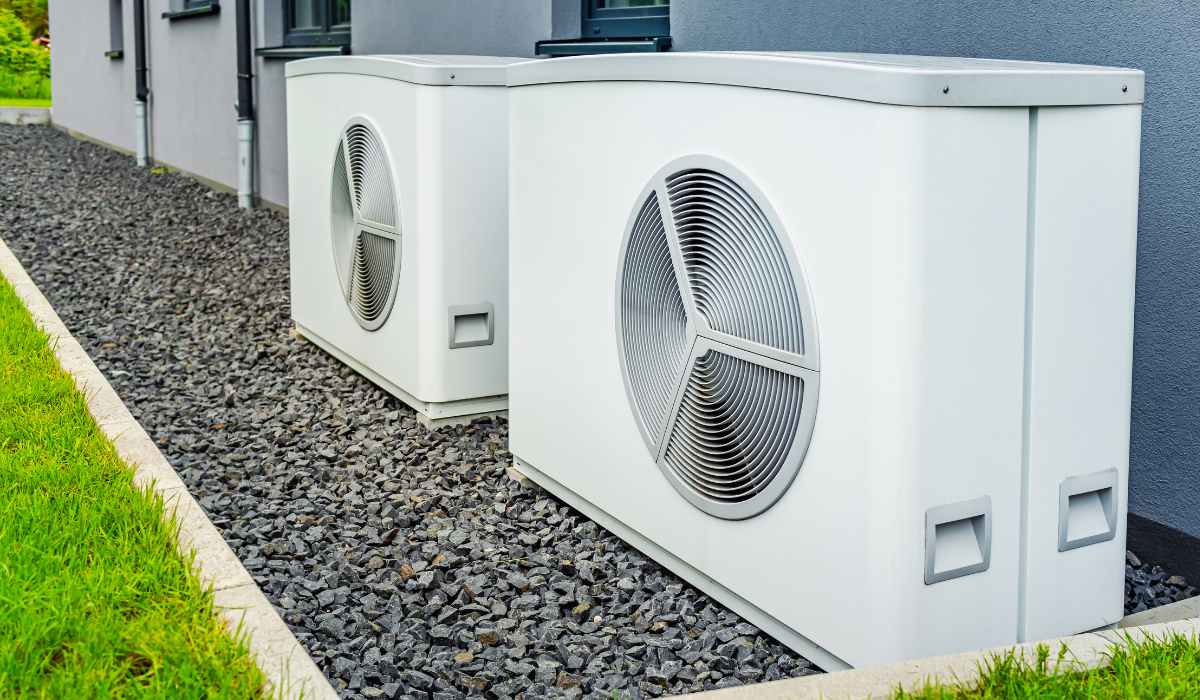
©brebcaphotos via Canva.com
9 US States To Adopt Electric Heat Pumps by 2040
February 7, 2024
In the face of global warming, nine American states are joining hands to champion the use of electric heat pumps. With an ambitious goal of converting 90% of residential heating, air conditioning, and water heating sales to heat pump technology by 2040, these states aim to drastically reduce carbon emissions.
The Northeast States for Coordinated Air Use Management (NESCAUM) is leading the charge with California, Colorado, Maine, Maryland, Massachusetts, New Jersey, New York, Oregon, and Rhode Island on board. Though there’s no specific funding tied to the deal, it’s certainly a considerable step toward a healthier planet.
The short-term goal is set at 65% conversion by 2030, in alignment with the U.S. Climate Alliance’s goal from last fall. The Alliance, consisting of 25 state governors, aims to quadruple heat pump installations to 20 million by 2030.
Homes in the East Coast states contribute significantly to greenhouse gases, mainly due to long cold weather seasons that necessitate heating and a reliance on oil and gas for home heat. Conversely, states in the West have less residential emissions.
NESCAUM, in a recent statement, underscored the harm caused by air pollution from burning fossil fuels, pointing out that homes are often overlooked sources of emissions. States are being urged to act swiftly and replace traditional HVAC units and water heating systems with heat pumps to fend off the disruptive impacts of climate change.
The Building Decarbonization Coalition sees this move as a clear market signal that heat pumps are the future of home climate control. Manufacturers who have been yearning for a long-term plan can now make significant investments, knowing the direction the market is heading.
The agreement compels participating states to work together on gathering market data, tracking progress, and developing an action plan within a year to support residential building electrification.
In Maine, where the move to heat pumps is already underway, the consolidation of industry data will aid in aligning state metrics and prevent further reporting requirements.
The states’ action plan will focus on workforce development, managing supply chain constraints, and ensuring that the heat pump market continues to grow. Under the agreement, states will issue yearly reports on their progress, with a planned review in 2028 for any necessary adjustments.
Apart from the necessary technical details, the agreement also focuses on ensuring the transition is inclusive. The participating states have pledged to allocate at least 40% of energy efficiency and electrification investments toward communities that are either burdened with excessive energy costs or are disproportionately affected by pollution.
Working together, these states are committed to advancing policies and programs that suit their individual needs while pursuing the collective goal. Part of this collaboration might involve learning and building on other states’ strategies.
The commitment to a long-term, specific action plan by these nine states marks a significant stride in the fight against global warming. Notwithstanding the challenges that lie ahead, the benefits of this initiative are far-reaching, promising a healthier environment and economic upliftment for disadvantaged communities.
Recent News
Premium and Healthier Food Options Gain Traction
As consumers become more mindful of their spending, the global sales of cooking ingredients and meals saw a notable increase of 4.4% in 2023, driven by inflation and higher commodity prices, according to Euromonitor International. This trend underscores a shift in consumer behavior towards more economical choices while still showing a preference for premium, healthier, and environmentally sustainable options.
Dairy Manufacturers Inc. Issues Voluntary Recall of Baby Formula
In a significant move, Dairy Manufacturers Inc., a Texas-based company, has initiated a voluntary recall of several baby formula products after they were found to be noncompliant with U.S. Food and Drug Administration (FDA) regulations. The recall encompasses all lot codes of three specific products: Crecelac Infant 0-12, Farmalac 0-12, and Farmalac 0-12 Low Lactose. This announcement was officially published on the FDA’s website on Saturday.
Fitness Equipment to Become $18.4 Billion Market
The global fitness equipment market is projected to reach $18.4 billion by 2033, growing at a CAGR of 3.02% from 2024 to 2033, according to Allied Market Research. Key drivers include the integration of Internet of Things (IoT) technology in fitness devices and the rise of corporate wellness programs. IoT-enabled equipment captures workout metrics in real time, enhancing user engagement and offering personalized insights. Corporate wellness initiatives promote physical activity in the workplace, increasing demand for fitness equipment in corporate gyms.
Walmart Ends Partnership with Capitol One
Walmart has officially ended its consumer credit card agreement with Capital One, marking a significant shift in the retail giant’s financial partnerships. This decision follows a series of disputes over customer service issues that culminated in a legal battle and a federal judge’s ruling.

